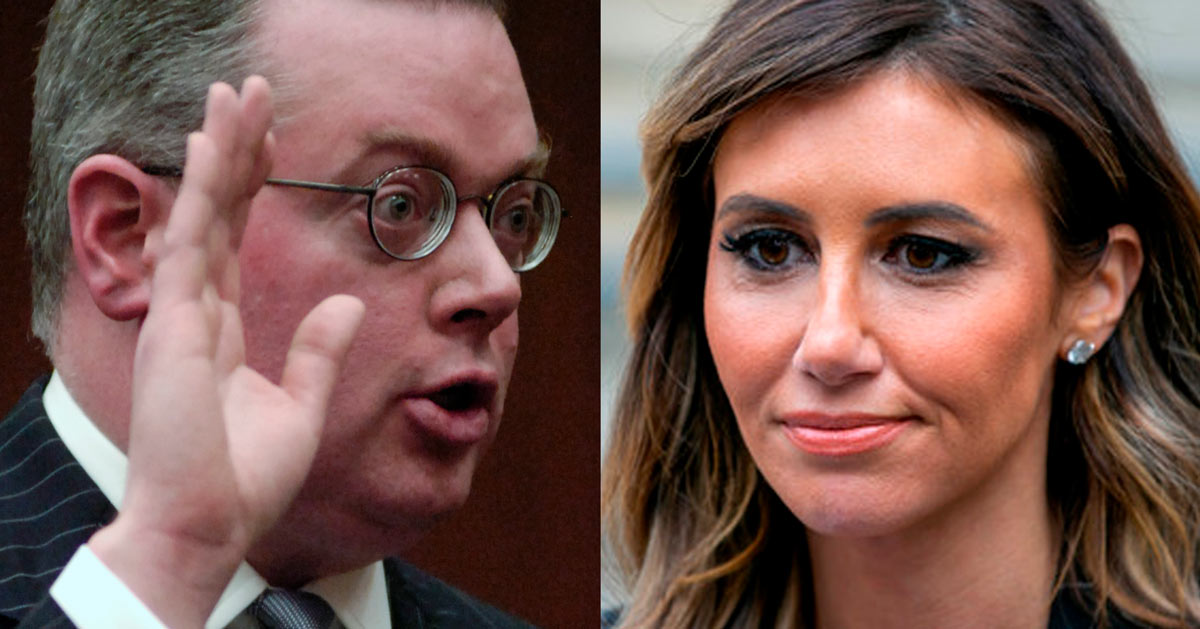A Barack Obama-appointed federal judge has ruled that Alina Habba has been unlawfully serving as the top federal prosecutor in New Jersey since July, despite being tapped for the role by President Donald Trump.
The decision underscores the escalating clash between Trump’s administration and Democrat-aligned judges over U.S. attorney appointments.
Judge Matthew Brann of the Middle District of Pennsylvania, in a 77-page opinion, said Habba’s authority as acting U.S. attorney expired after 120 days, the limit under federal law.
“Faced with the question of whether Ms. Habba is lawfully performing the functions and duties of the office of the United States Attorney for the District of New Jersey, I conclude that she is not,” Brann wrote.
“And because she is not currently qualified to exercise the functions and duties of the office in an acting capacity, she must be disqualified from participating in any ongoing cases.”
Trump had appointed Habba in March as interim U.S. attorney.
However, when her 120-day term expired in July, New Jersey’s Democrat-aligned district judges moved to install her deputy, Desiree Grace, as temporary successor.
The Department of Justice responded by firing Grace and reinstalling Habba.
This time, the DOJ gave Habba the title of “Special Attorney to the Attorney General.”
That maneuver, which the administration argued was necessary because Democrats continue to block Trump’s U.S. attorney nominees from receiving full Senate votes, is what sparked the legal challenge.
Three criminal defendants in New Jersey argued that Habba lacked legal authority to prosecute them once her interim appointment lapsed.
Judge Brann agreed, declaring that any prosecutorial action taken under her supervision since July 1 was void.
However, he declined to throw out their indictments, keeping the cases intact while barring Habba from overseeing them.
The unusual case was reassigned to Brann by Chief Judge Michael Chagares of the Third Circuit Court of Appeals.
Chagares transferred it out of New Jersey “in the public interest.”
Brann has stayed his ruling to allow for an appeal, meaning Habba will remain in her post while higher courts review the matter.
The Justice Department defended Trump’s authority, writing in a court filing that “the President has made clear that he will not permit anyone other than Ms. Habba to fill the current vacancy.
“That is his prerogative; this Court cannot second-guess it.”
Habba, who rose to prominence as one of Trump’s most vocal legal defenders during New York Attorney General Letitia James’ civil fraud case, has been aggressive in her role as prosecutor.
Shortly after taking office, she opened an investigation into Democrat New Jersey Gov. Phil Murphy’s immigration policies.
Her office also brought charges in May against Rep. LaMonica McIver (D-NJ) for allegedly assaulting federal officers during an inspection at an immigration detention center in Newark.
She also sought charges against Newark Mayor Ras Baraka for trespassing, though the case was later dropped.
The battle over Habba’s appointment reflects a larger political fight.
Senate Democrats have repeatedly stonewalled Trump’s nominees for U.S. attorney positions, forcing the administration to rely on interim appointments to keep federal prosecutors in place.
Instead of allowing confirmations to move forward, Democrats have weaponized procedural delays to block Trump from filling critical posts with Senate-approved appointees.
Legal experts note that the current controversy in New Jersey is the direct result of this obstruction.
By refusing to advance Trump’s nominees, Democrats effectively invited the administration to seek alternative paths to keep prosecutors like Habba in office.
Now, those very maneuvers are being challenged in court, largely by Democrat-appointed judges, creating a cycle of resistance that undermines Trump’s efforts to staff the Justice Department with officials who will hold blue state leaders accountable.
For Republicans, the ruling against Habba is not just about one office in New Jersey but about a broader strategy by Democrats to weaken Trump’s ability to enforce federal law on hostile political turf.
With appeals underway, the case could become a key test of presidential authority over U.S. attorney appointments in the face of partisan Senate obstruction.
READ MORE – Clinton-Appointed Judge Blocks Trump’s Push to Unseal Epstein Grand Jury Records

Our comment section is restricted to members of the Slay News community only.
To join, create a free account HERE.
If you are already a member, log in HERE.